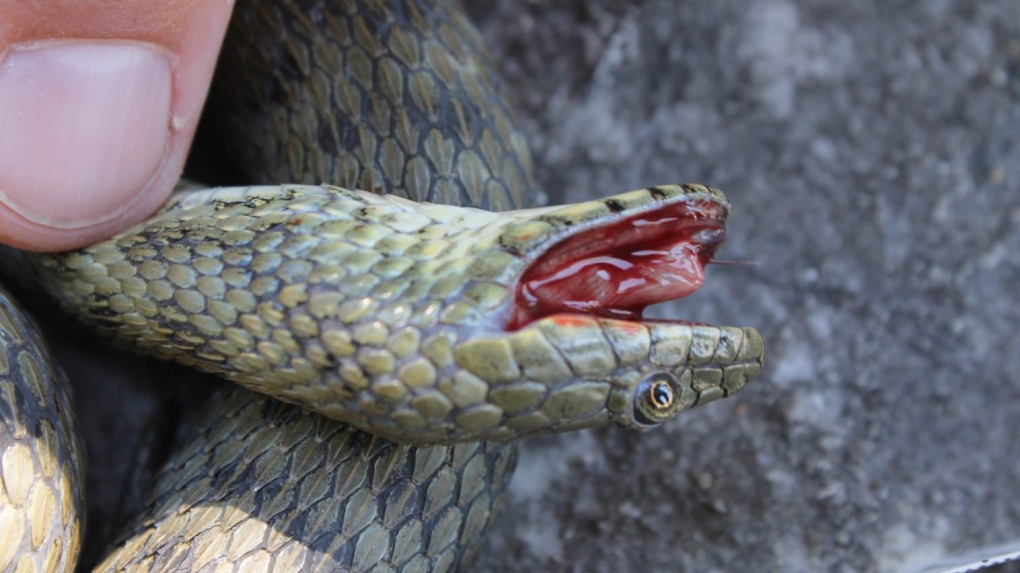Awards season may be over for human actors this year, but there’s no rest for some of nature’s most audacious thespians.
Dice snakes can fake their own death when being attacked by predators, putting on a theatrical display that includes smearing themselves with their own poop and letting blood ooze from their mouths.
And dice snakes that use these extra dramatic effects spend less time feigning their own deaths, and consequently less time in a dangerous situation, than their counterparts that don’t use this strategy, a study published on Wednesday in the journal Biology Letters found.
Many different animals fake their own death as a defence mechanism against predators, with examples seen among insects, fish, amphibians, reptiles, birds and mammals, but just how – and to what degree – it works is still unclear.
“There are conflicting theories about the origin of death feigning,” Vukašin Bjelica, a research associate at the University of Belgrade in Serbia and one of the study’s authors, told CNN via email.
“Some say it is a conscious response while others are adamant it is not. One theory is that it is the ‘most primitive’ defence response, similar to freezing in a high-stress situation,” he said.
Lying motionless and exposing vulnerable body parts to a predator is risky, and so researchers from the University of Belgrade hypothesized that the more dramatic the show, the less time snakes would have to spend in danger.
To test this, the researchers travelled to Golem Grad, an island in a lake in North Macedonia, where the snakes are common.
There, they grabbed hold of 263 of the nonvenomous dice snakes and pinched them with their fingers to simulate the actions of a predator, before releasing each snake and timing its subsequent behaviour as it feigned death.
They observed that some snakes played dead by leaving their mouth wide open, some smeared themselves with poop and others oozed blood from their mouth, too.
The 28 snakes that bled from the mouth spent two seconds less on average feigning their death, the study found, though some snakes that didn’t unleash the full theatrics spent a shorter amount of time playing dead too, perhaps due to other factors like temperature, sex or size.
Overall, the snakes spent between about six and 24 seconds playing dead.
Bleeding from the mouth was a relatively uncommon behaviour and observed in only 28 of the snakes tested, while smearing occurred in 124 of the cases.
Not all the snakes tested feigned their own death. Juvenile snakes captured faked death for a much shorter time period and bled from the mouth much less, and these behaviours were completely absent in newly hatched snakes from a similar species, the study said, perhaps because of the dangers associated with it.
Antipredator behaviour is dependent on many different things, like the sex of the individual, body temperature, size, age, presence of food in the gut, presence of eggs in females, previous experience with a predator and pre-existing injuries, Bjelica said.
“It is still not exactly clear how each individual ‘tailors’ their antipredator response and our observations are mainly limited as most of them come from interactions with human researchers and not observations of real-life encounters with natural predators,” he added.
Smearing itself with poop makes the snake less appetizing for its predator, which researchers said explains why snakes that do this before playing dead then spend less time in this situation.
While the snakes don’t squirt blood directly at their predators, like horned lizards do, bleeding from the mouth signals their apparent death to the predator. Researchers believe the bleeding is caused by an increase in blood pressure, prompted by high levels of stress hormones, Bjelica said.
The study’s results now need to be replicated in other species and ecosystems, the researchers said, adding that future research should focus on the precise sequence of behaviours displayed.











































